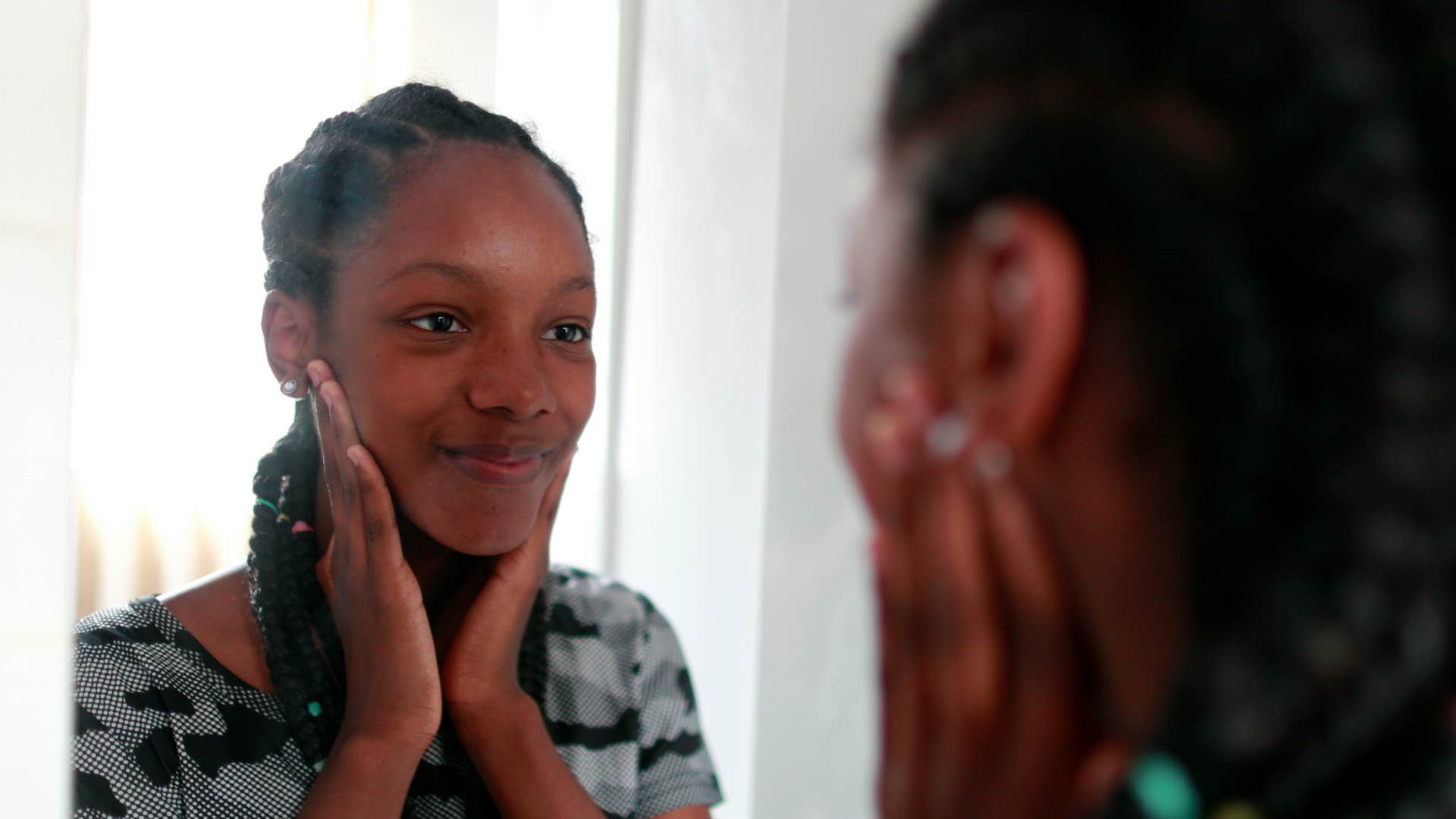If You Want To Find Your Voice And Get People To Listen, Start Practicing These 6 Habits
Finding your voice doesn't have to feel impossible.
 David Sameneigo | Unsplash
David Sameneigo | Unsplash After being silent for so long, finding your voice can be tricky. But, in the wake of this last year, it's evident that our voices need to be heard. We need to shout from the rooftops for the rights of others. This may be an easy task for some, but if you're like me, it's hard to know where to start.
There are many important issues out there in the world, and each person is uniquely designed to advocate for them in different ways. In some circles, speaking up challenges and inspires others. And, sometimes, those who speak out are met with criticism and judgment.
If you want to find your voice and get people to listen, start practicing these 6 habits:
1. Look in the mirror
 True Touch Lifestyle / Shutterstock
True Touch Lifestyle / Shutterstock
Before you can start speaking, you need to look at the "Man in the Mirror" (thanks, MJ) and start educating yourself. Most people don't believe that they're the problem — even though studies show over 85% of people think they’re less biased than others, yet implicit bias is found across nearly every group.
However, everyone contributes to stereotypes and biases without even realizing it. Take a moment to educate yourself. Read, listen, and challenge your perceptions before putting your voice into the world.
Social justice issues have always been there. If you're just starting to find your voice in one, it’s like showing up to a college lecture late.
Do you expect a professor to stop the class and catch you up? No? Good. Instead, you need to figure out what you missed and jump in there.
2. Decide where your voice matters most
 fizkes / Shutterstock
fizkes / Shutterstock
In the schools? Churches? High-tech? In your local dog park?
With your friends or neighbors? Who is in your circle now? Where will your voice be heard the loudest?
Voices do not have to be loud to be powerful. They can also be whispers of support in heart-to-heart conversations.
You can use them to help process pain in therapy. They can aid in healing and increase empathy in those who don’t quite understand.
Use your influence where you're already planted. People are far more open to your voice if you already have an established relationship with them.
3. Use your unique skills
 PeopleImages / Shutterstock
PeopleImages / Shutterstock
Can you write petitions, donate money, and volunteer your time? Are you a master negotiator and an advocate in the legal system?
Do you know a thing or two about accounting and can volunteer your services to others? Are you an artist who can invest in the lives of those around you with art lessons?
Your experiences and education in life can be used to direct your path. You don't need to reinvent yourself — research shows that people who volunteer longer using existing skills report higher self-efficacy, happiness, and deeper social connectedness. Instead, take a look at the unique gifts you have been given and start there.
Often, the groups you've been a part of, the trips you've gone on, the classes you've taken, and the places you've lived — all have influenced your unique worldview.
What have you seen in your life that stirred up passion and pain? This is where you start.
4. Show up and be consistent
 Pixel-Shot / Shutterstock
Pixel-Shot / Shutterstock
After reflecting upon your sphere of influence and your talents, it’s time to show up. This is the hard part.
If you join an organization or a group, figure out where you can contribute consistently, because research shows that regular volunteering boosts mental, physical, and social well-being. Be honest with yourself, your time, and your commitments.
Right now, this may be a monthly financial donation. It could be volunteering once a month or twice a year. It could be hosting a group, in person or online. It could be starting a new organization.
Be realistic with your season of life. If you're working and raising babies at the same time, this might not be the time to commit to weekly engagements. If you're a college student or a retired empty-nester, maybe you have more time to be present with your cause.
Recognizing the level at which you can be engaged is incredibly important. If you're strapped for time or energy, please don’t over-commit. You will leave others feeling disappointed.
This may not be your season to engage fully, but it doesn't mean that your time is not coming. Instead, be consistent in educating yourself, talking and learning from others, and helping when you can. That's still an effective use of your voice.
5. Be open to correction
 PeopleImages / Shutterstock
PeopleImages / Shutterstock
Once you start talking, you start learning. Often, your best intentions are met with criticism and judgment. You think you're saying all the right things to stir hearts and inspire new passion, and then you are blindsided by a correction of your views.
This hurts. It often causes defenses to rise and arguments to ensue. Social media is flooded with threats of erasing and dismissing friendships based on how well voices are being used or not used.
Comparing how loud each person is speaking, their values, and whether or not the "right" words are used is fueling a lot of broken relationships. It feels like our voices are still not good enough.
Don’t let criticism thwart your efforts. Shake it off and surround yourself with people who want to educate and work with you to define your voice. Many organizations are dedicated to doing that, educating.
Please don’t ask your friend or neighbor to sit you down and give you a lesson. Instead, seek out the people already teaching and learn from them. And then, the more you speak, the more you learn where your blind spots might be.
6. Educate others with compassion
 Tint Media / Shutterstock
Tint Media / Shutterstock
If you've done the work and are well-versed in the subject, be open to helping others. Sometimes, people with the best intentions use the wrong words or don’t have the whole story — approach with love and curiosity.
You will do far better if you kindly, but firmly, educate others — research shows that when people create a sense of common humanity, they're more able to build meaningful relationships even with those they disagree with. The world will be a far better place if you learn to fight with people and not against them.
Discovering your voice, your influence, and your skills allows you to join hands with others and create common ground.
Together, we can send a strong and loud message to create lasting change. Unity is key. Finding your voice is the first step.
It's important to learn where, how, and when you can use your unique voice to change the world for good. I would venture to say that all human rights are important and impact our world. They are all important and need loud voices to bring to light the injustices we see every day.
Can you fight for all human rights? Maybe, but this can be overwhelming and non-productive.
You can care and be compassionate for all humans, but if everyone works together to choose one or two issues to devote their time and energy to, they would all be covered. Your voice is a tool, and you need to decide where your voice is most needed so that you can be the loudest and most effective for your cause.
Cherise Stewart is a marriage and family therapist who integrates faith, hope, and practical tools into everyday life.

